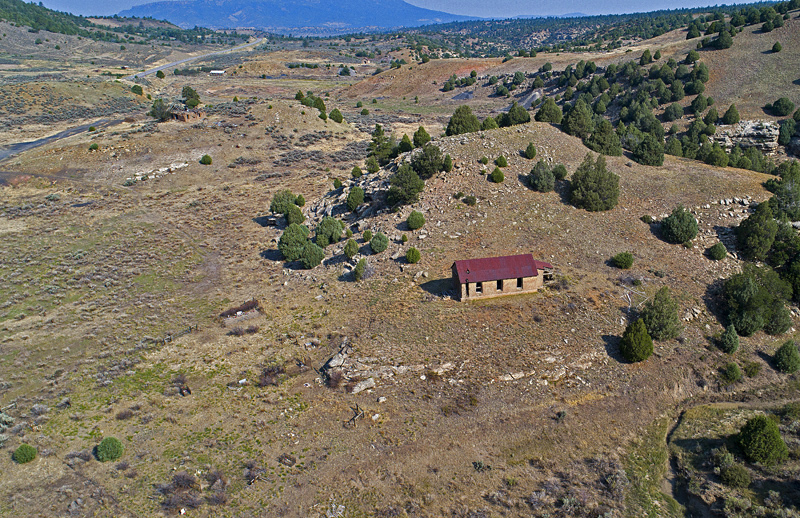Re: Monero, New Mexico.

Posted:
Wed Sep 05, 2018 7:38 amby Jason Rose
Roger, do you know if the mine is intact?
Re: Monero, New Mexico.

Posted:
Wed Sep 05, 2018 8:08 amby Roger Hogan
Jason Rose wrote:Thanks, Roger.
I didn't hike up the hill to look it over since I was told the entrance was covered.
Re: Monero, New Mexico.

Posted:
Fri Sep 07, 2018 1:00 pmby Roger Hogan
A Friend of mine just made this information available to me.
Monero, about 3 mi southeast of Amargo, was founded in 1884 by a group of Italian coal miners who optimistically gave their town the name of the Italian word for money. Monero was a site important to the Denver Rio Grande and Western Railroad, since there was a lot of timber and small coal mines nearby. Except for a small amount used for domestic purposes, the coal was sold to the Denver Rio Grande and Western Railroad. Coal was mined in several small mines in the area, hauled to Monero, then loaded via a ramp into a tipple which loaded the coal into locomotive tenders and also into gondolas to be transported to other locations along the line where it was needed.
In 1892, E. M. Biggs built a sawmill plant about 550 feet southeast of the D&RG's Monero water tank, to which the railroad' built a mill spur. According to Biggs' son, the Monero mill operated less than a year, closing in 1893.
The country between Chama and Tierra Amarilla and Monero, once heavily forested, was stripped of its cover of timber. Without the protection of the trees, water from rains and snows eroded vast gulleys in the land; without its carpet of pine needles, the soil became poisoned with alkali, and the once rocky-bottomed and clear streams became muddy and brackish and bitter. Sage and cactus grew. The loggers had succeeded in converting a forest into a desert, dotted here and there with the rotting stumps of once-great trees. Those stumps are the monuments to the lumberman's contribution to the valley of the Rio Chama.





























